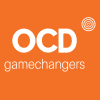Moral Scrupulosity is a subtype of Obsessive Compulsive Disorder (OCD). It involves the individual obsessing over whether or not they are a “good” or “bad” person, in terms of their moral compass. The person living with Moral Scrupulosity (shortened to Scrup) experiences intrusive (meaning unwanted) images, urges, and/or thoughts about violating their moral or ethical beliefs. As with other types of OCD, these obsessions trigger anxiety in an individual, and then they will engage in a compulsion to lessen that distress.
Some common obsessions within Moral Scrupulosity might include:
- Concerns for having said or done something offensive
- Worrying that they have told a lie
- Fears of doing something illegal and going to prison
- Thoughts about having committed an evil act in the past
- Excessive worrying that they are going to act on an impulse and harm somebody
Similarly to any theme, a person living with Moral Scrup OCD struggles to accept the uncertainty surrounding these thoughts. In feeling unable to tolerate that uncertainty, this individual engages in an act (a mental or physical compulsion) to lower that anxiety/distress.
Some common compulsions within Moral Scrupulosity might include:
- Seeking outside reassurance, or providing reassurance for themselves, that they have not committed an immoral or illegal act
- Avoiding certain people or situations so that one doesn’t lose control of their impulses
- Repeatedly replaying and reviewing past scenarios
- Trying to replace “bad” actions/thoughts with “good” ones
Completing that compulsion might work in the short-term, but – like with all of the differing themes of OCD – over time, the “what if”s will continue to creep back into the mind of somebody with Moral Scrupulosity and they will feel the need to continue seeking out that certainty.
As is the case with any type of OCD, Moral Scrupulosity is manageable with the proper tools in place. First of all, it will be important to stop trying to get rid of or change the feelings/urges. These thoughts are just thoughts, and they themselves are not what is causing that distress; it is the reaction to the thoughts that truly keep an OCD sufferer stuck in the loop. Exposure and Response Prevention (ERP) therapy is the most effective form of treatment when it comes to living with OCD. Make sure to check out our previous blog with more specifics on ERP at https://ocdgamechangers.com/treating-managing-ocd/ to learn more!
Below, you will find a personal account from Mollie, one of our blog writers, who lives with Moral Scrupulosity OCD.
I think we would all agree that it is important to be a good person.
What makes somebody a “good” person, though? It might be fair to say that logically, somebody is “good” if they care about other people, donate to charity, and don’t steal, cheat, or lie.
Just like with other subtypes or themes of OCD, Moral Scrupulosity does not abide by logic or reason. According to my OCD, the way I walk down the street or say my name has a bearing on how “good” of a person I am. On more than one occasion, I have been so convinced that I had previously yelled out a racial slur or curse words in a store that I avoided going back to that store, in fear that I would be found out and never welcomed back. If I showed up late to an appointment by two minutes, I felt like that was on the same level as intentionally causing bodily harm to another person.
These thoughts might seem illogical, and that’s because they are! Obsessive Compulsive Disorder latches on to things that don’t make any sense, and my experience is no exception. Since early childhood, my parents tried to instill in me a sense of right/wrong, good/bad, moral/immoral – just like every parent does and should. However, my OCD took those ideas and ran wild with them. My mental illness holds me to an unachievable standard in terms of what makes me a “good” person, and it gets stuck on thoughts and actions that don’t truly have any basis in reality.
It took me many undiagnosed years to understand that Moral Scrupulosity is never something I am going to “get over”, no matter how hard I tried. OCD is a chronic mental illness, which means I will most likely live with these thoughts for the rest of my life. OCD does not respond to logic or reason, regardless of how much reassurance we seek or how many times we replay a situation in our head.
Something very important that I learned is that, while I cannot ever expect to get rid of my OCD, I can learn to live a fulfilling life with the OCD present. In order to recover from this debilitating illness, I needed to accept that these thoughts (the obsessions) are not what is keeping me stuck; rather, it is my response to the thoughts (the compulsions) that are truly keeping me in that Obsessive Compulsive cycle.
Being in Exposure and Response Prevention (ERP) therapy was a necessary step towards my recovery. A trained OCD specialist who utilizes ERP therapy was able to teach me valuable strategies to combat those thoughts when my anxiety is triggered. In addition to ERP therapy, the gold standard in treating OCD, I have also been taking an SSRI (Selective Serotonin Re-uptake Inhibitor), an antidepressant, as this aids in quieting the obsessions. Accepting that I cannot truly know if I am a “good” or “bad” person – and choosing to still move towards my values – is how I am able to continue living a life that I choose.
Mollie Albanese
Author

